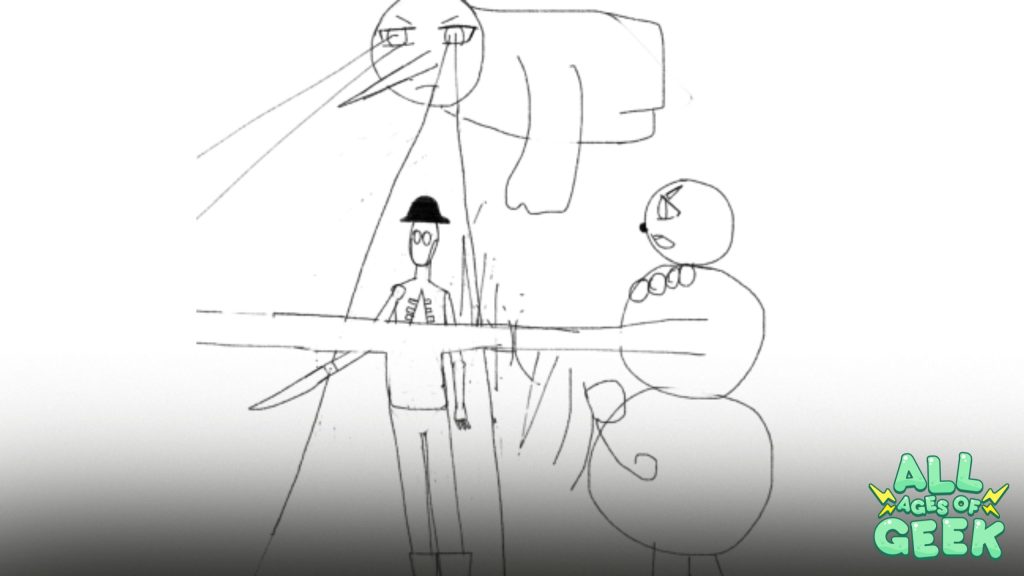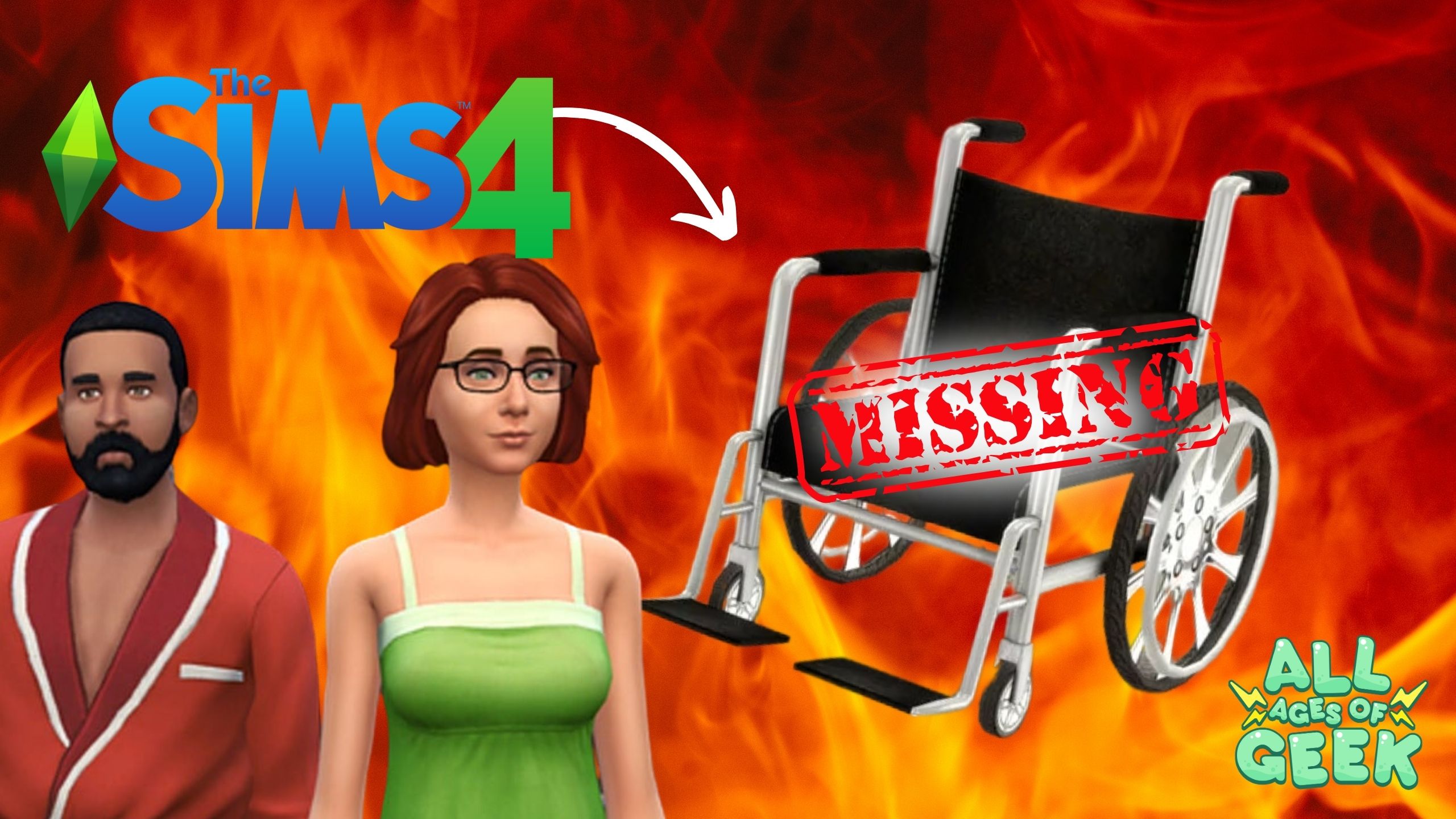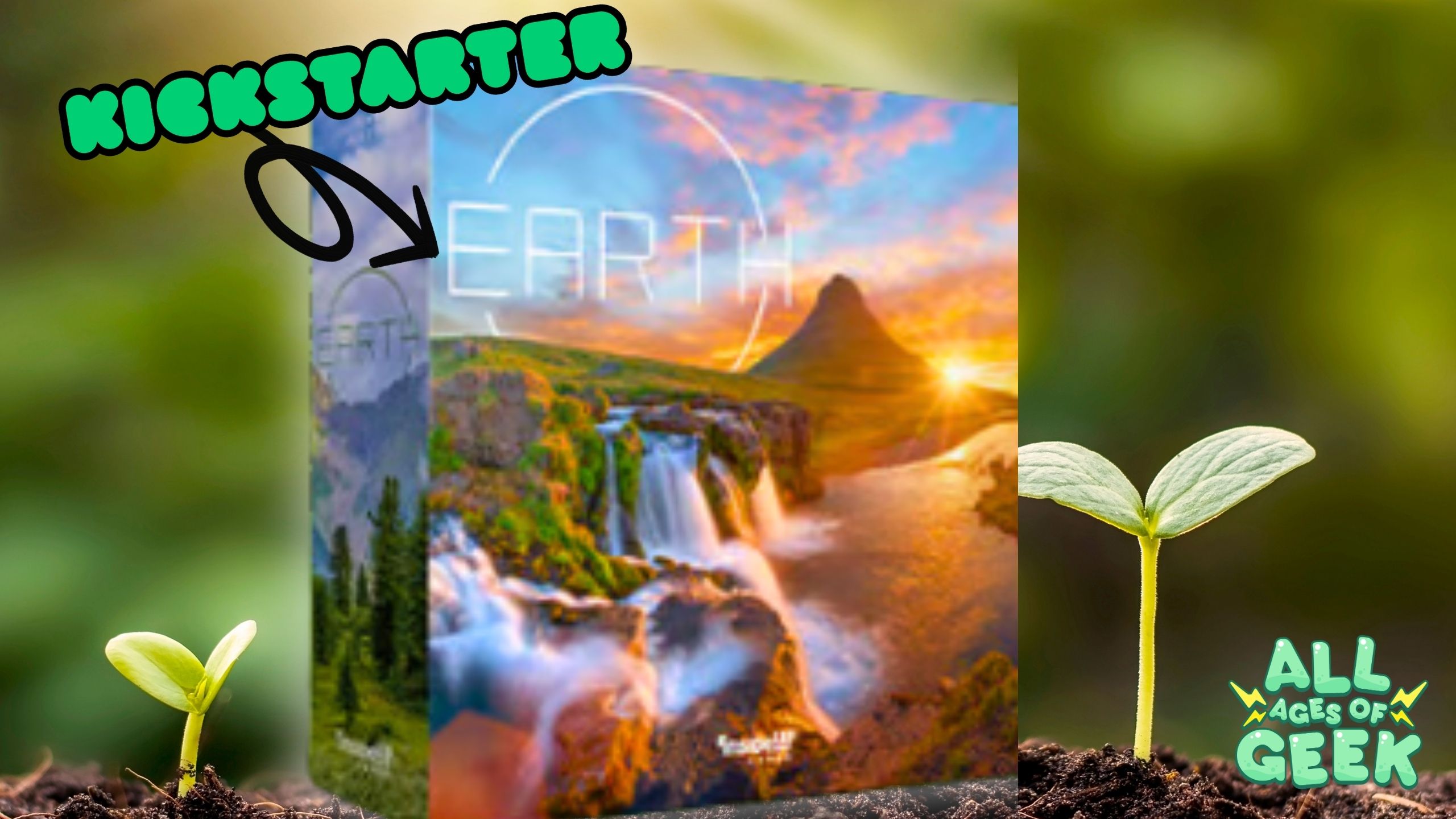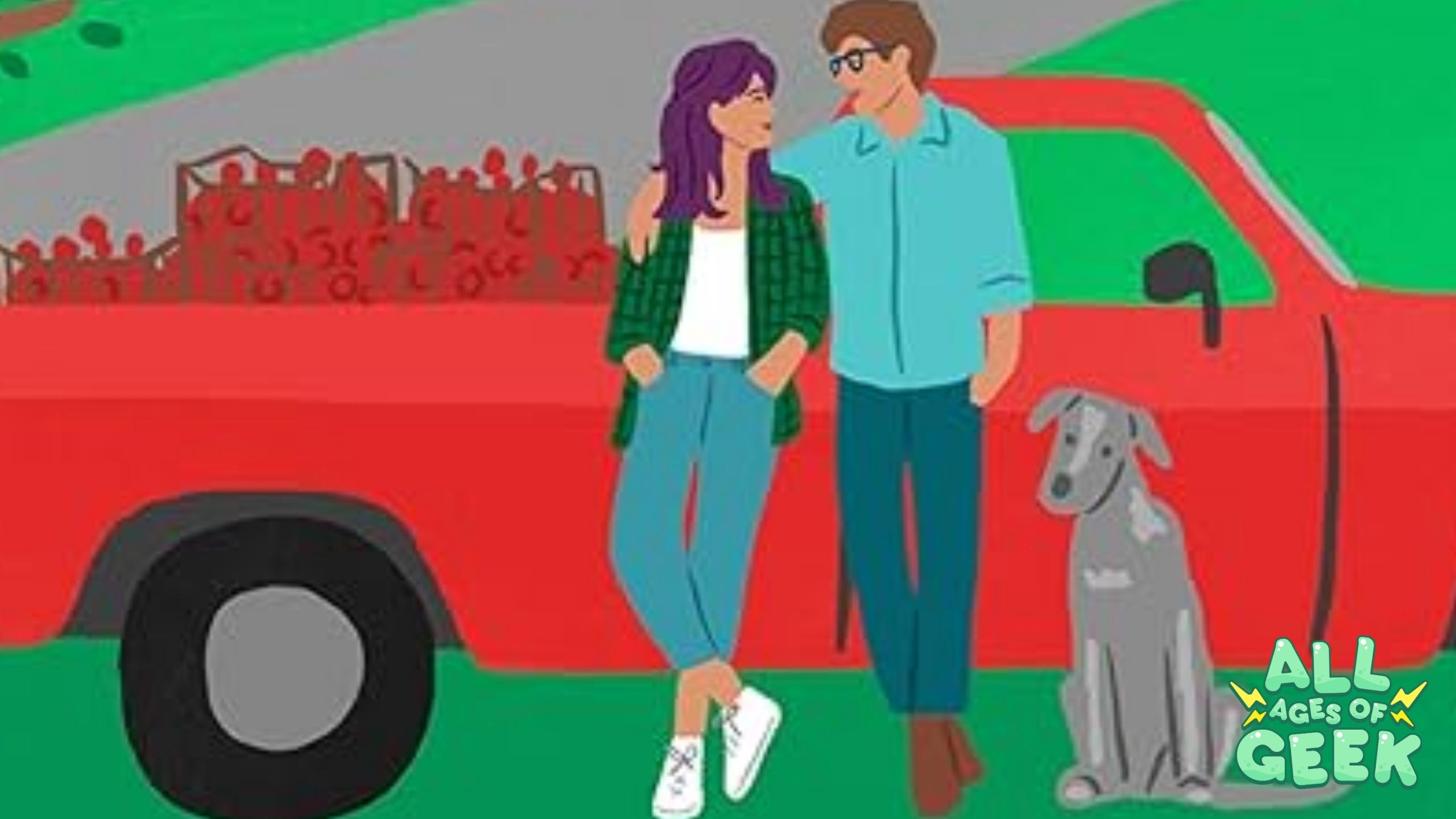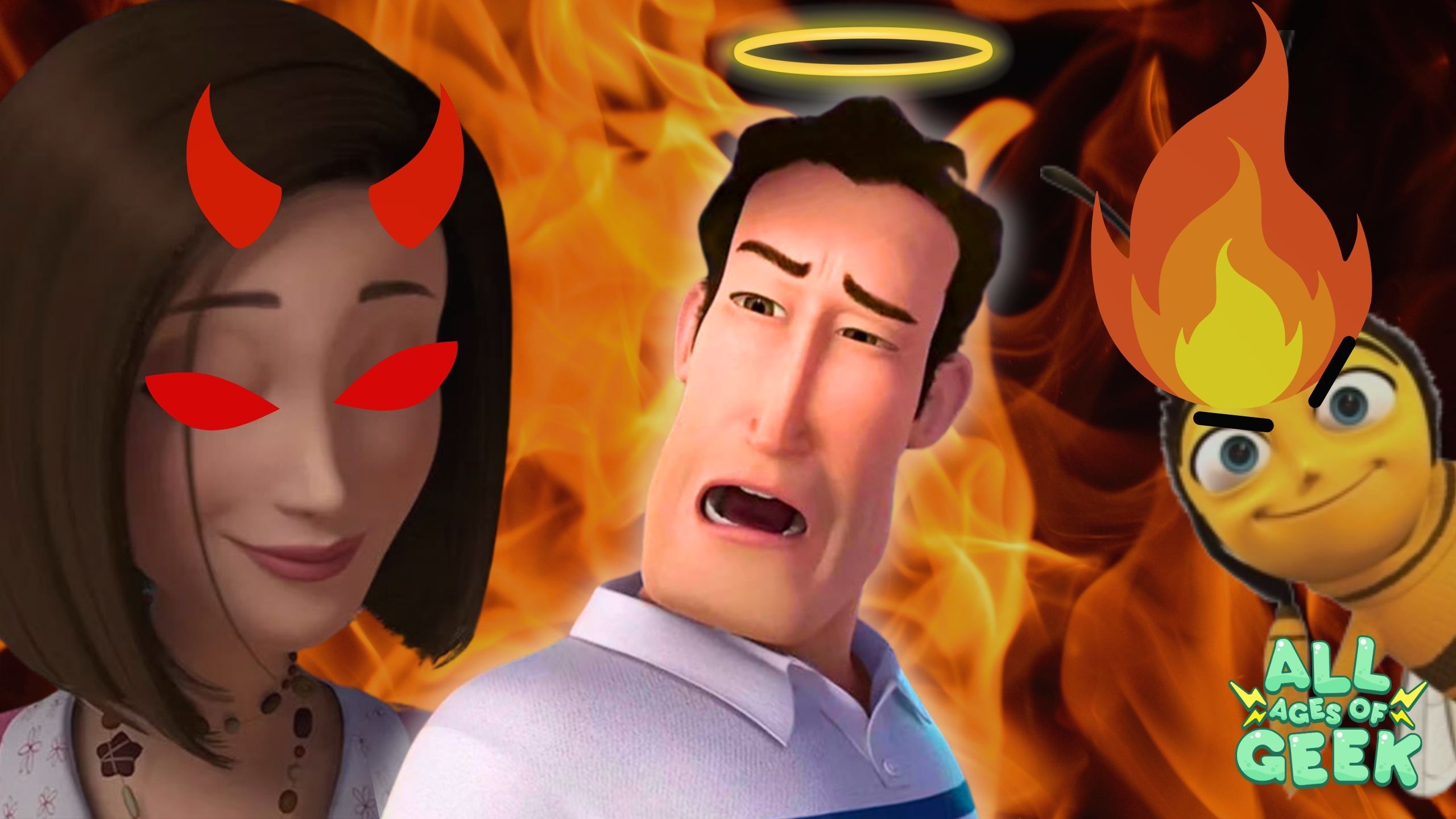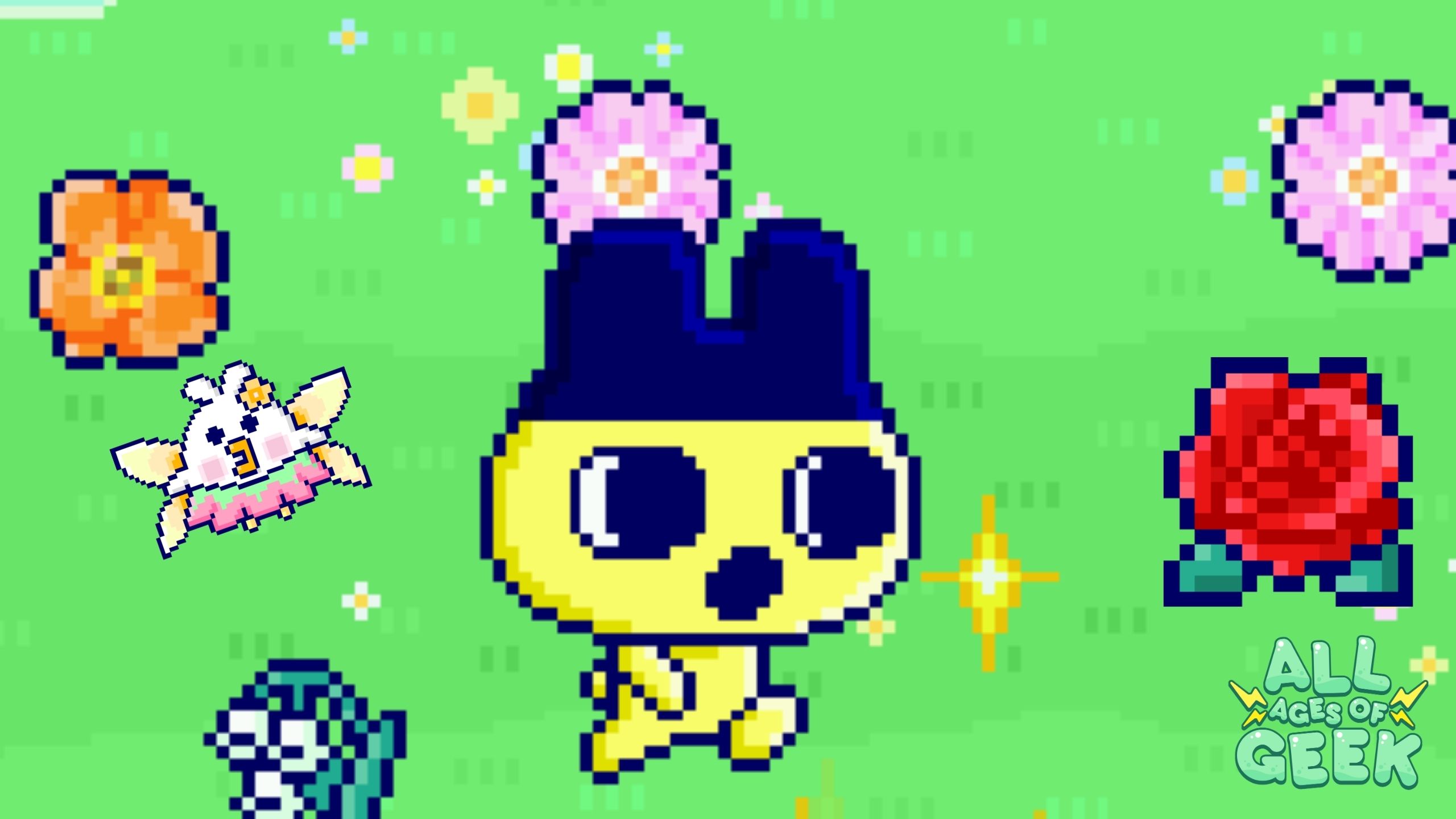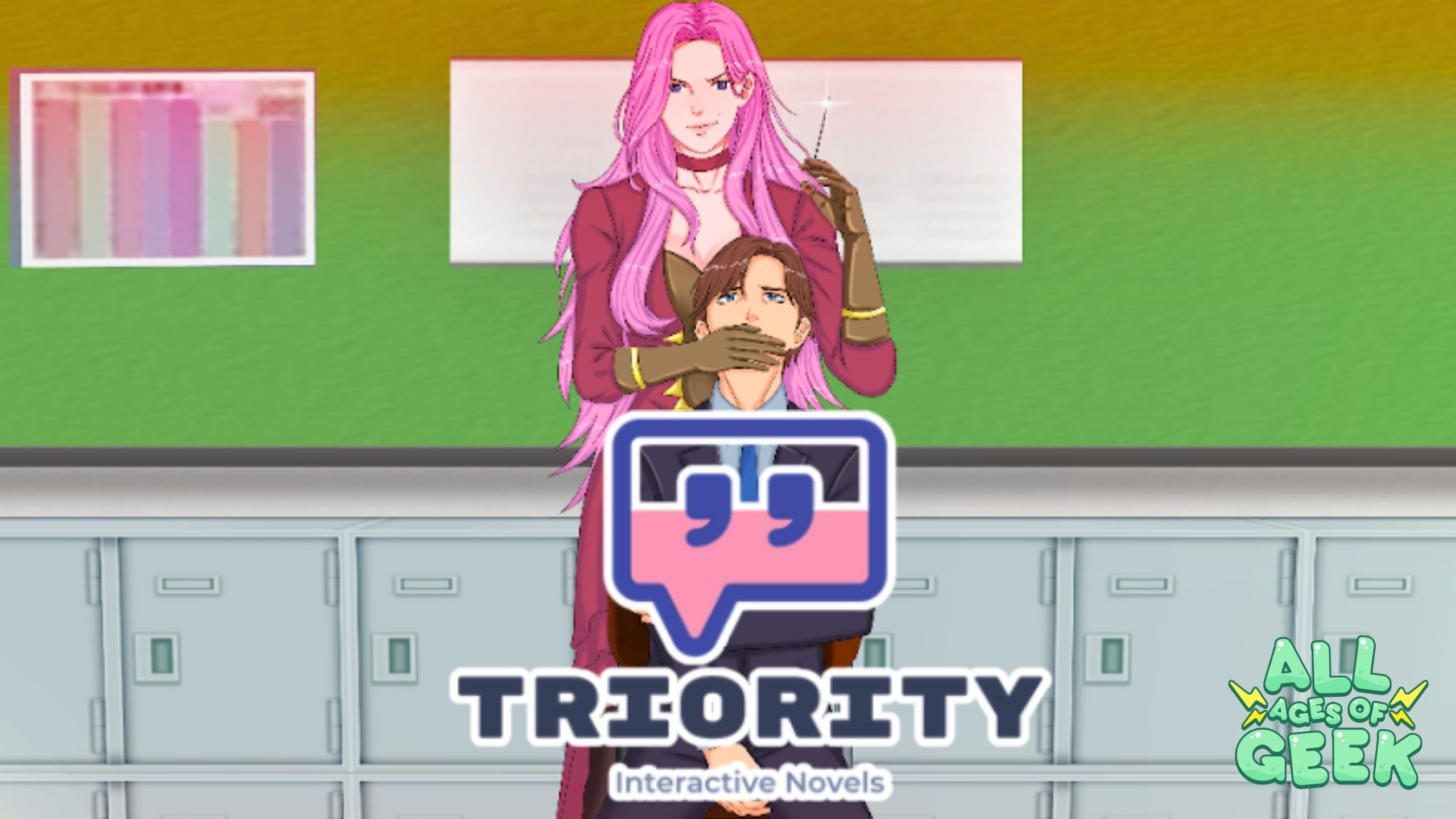Tapas Interview with Aeneas1 creator of “Nixvir” – All Ages of Geek Tapas Reviews
Hey, it’s Ryder! We are starting an initiative on All Ages of Geek as we interview Tapas Web Comic Creators. Today I’m thrilled to be sitting down with comic creator Aeneas1, to chat about their creative process and the exciting world of Tapas Comics. Aeneas1 has made a name for themselves with their unique storytelling skills and original artwork, and we can’t wait to dive into the mind of this talented artist.
A note from Aeneas1 creator of “Nixvir”
Hello. I am Aeneas1! I am the sole creator for the comic Nixvir, which has now been adapted into an audio drama, written and directed by me, which is available for listening on Spotify! Join me as I discuss my personal history with the comics medium and what ultimately led me to create Nixvir…
What initially sparked your passion for creating comics, and how did that desire evolve into the work you produce today?
Where did it come from? Hm, well the answer I give depends on what comics I read. I did not consider a career in comic books until around 2017, when I bought and read Alan Moore’s Watchmen. Of course, our country has comics already, such as Rupert Bear – an album of which I owned as a child – but it was Watchmen that opened me up to the possibilities of what the medium could accomplish in a post-literate world. However, the work that made me believe that a comic could tell a beautiful, literary story rife with symbolism has to be Neil Gaiman’s The Sandman, and the magical imaginary world Gaiman creates within his stories influenced me quite a bit. In fact, I could say that he was even more inspirational to me as a source than Moore was. I suppose reading some Japanese manga and seeing the sheer breadth of creativity and wonder on display, especially in comparison to our Western media, was part of what drew me to the utilisation of the art style itself, leading to my desire to create an OEL manga that could one day become a great work of English literature, alongside the likes of Tolstoy’s War and Peace and Tolkien’s Lord of the Rings, and Nixvir, after several months in the womb, was finally born.
Can you walk us through your journey as a comic creator, starting from the moment you first decided to explore this medium?
The first time I ever drew comics was at the age of thirteen, when I wrote a piece of juvenilia called Adventures of the Mad Hatter – crazy typical teen nonsense, really – I wasn’t very good at writing back then and so I illustrated the rest of the Hatter’s journey with crude illustrations. Afterwards, I let that obsession go for a while, while I developed my writing, and then, while I was writing a book about British manga, I accidentally discovered Tapas. Following a particularly disastrous attempt at an interview by a rival university to mine, I said, “To Hades with it” and published Nixvir on Tapas.
Your work touches on various themes and subjects. How do you choose which stories to tell, and what do you hope your readers take away from them?
While it is true that my work contains various themes, such as what it means to merely exist, I have no strict method by which I choose which stories to tell. They come into my head unbidden, I jot most of them down, and I write and draw them when I can be bothered to do so. Mine is a very “by the edge-of-one’s-trousers” style of writing, and whenever I am, for example, writing screenplays – like the ones for my adult animated webseries – a majority of the time, I am using notes I earlier recorded, or simply inventing it as I go along.
What led you to choose Tapas as the platform for sharing your comics, and what aspects of the site do you find most appealing for your work?
What really happened followed a period wherein a university “anime society” began worshipping my work. It had become noticed by a drunken young university student, who was the technician for a podcast but whose technical skills were, unfortunately, extremely lacking. I kept pestering him and pestering him until he confided that he had destroyed the podcast footage, and insulted me with a very cynical monologue about the futility of human endeavour. It is partly my fault, of course. I ought to have kept a copy of that footage for myself. Since I already knew of Tapas’ existence, and because I knew that there were so many risks with publishing on WEBTOON – viz. the appalling manner in which they treat their creators and the difficulty of having one’s work be noticed on that platform – I went and published my comic on Tapas without any consideration for any consequences that would follow.
Tapas has its own unique features and community. Are there any aspects of the platform that you feel could be improved, or perhaps have been challenging to navigate?
There is nothing I feel about Tapas that could in the slightest be improved by any expression of human agency. The platform has allowed me to freely publish and promote myself via the promotional posts on the Forums. The people running the website and the people on the Forums have been especially kind to me, in spite of the many problems which they may experience with it.
In your opinion, what distinguishes independent comics from mainstream comics, and why do you think the indie scene is important for the overall comic industry?
I think the indie scene is important for the reason that mainstream comics, such as the Big Two, have in recent years become corrupted and rotten, infected by a certain mean-spiritedness and vulgarity. The independent scene, therefore, is necessary so that artists can voice their own opinions and their own creative expressions, rather than being forced to serve a corporate machine which attempts an “ideology” rather than attempting to do some form of meaningful, soulful work of art.
As a comic creator, what are some unique storytelling techniques you’ve developed to set your work apart from others in the genre?
I often write my characters using various fonts. This is useful as a storytelling technique because it helps illustrate which character is speaking and what that character is like. For example, I wrote Erik in Rockwall, to illustrate his sturdy nature, and Oriel in Script MT to emphasise her ethereal, otherworldly, feminine qualities. The problem, of course, is trying to figure out which font should work. I often keep forgetting which font I’m supposed to be using for which character who isn’t Oriel or Erik.
Apart from your comics, what other avenues do you explore to engage with your audience, such as social media, live events, or merchandise?
I am unavailable for social media. Whenever I use it, I inadvertently use it to insult people in a way in which people assume I am acting passive-aggressive when in actuality I mean no harm. Besides, I have experienced a lot of drama on social media, which has turned me cynical. I am not presently available for live events, since, I shall admit, I am by nature something of a hermit, and very much prefer my own company. Merchandise is something I am seriously considering, but I shall not produce any until there is sufficient demand for it.
Creating comics can be both rewarding and challenging. Can you share some of the struggles you’ve faced along the way, and how you’ve overcome them?
I suppose the biggest challenges, for me at least, include: how to replicate the Japanese comic style in a way that comes across as authentic; how to draw realistic backgrounds; and how to draw hands. I have overcome these struggles by trying to find creative solutions about how to approach these challenges: keeping the scenery as simplistic as possible, for instance.
Are there any comic creators, artists, or writers who have been particularly influential or inspiring to you? How have they shaped your creative journey?
I suppose, in terms of comic writers, the most influential have been Neil Gaiman and Alan Moore. As I explained above, they were inspirational to me because they demonstrated what the comics medium could do, both in terms of symbolism (visual or otherwise) and how it can stand on the level of literature. Otherwise, other non-comic creators influential to me have included William Shakespeare, Tolstoy, H.G. Wells, and others. You could say I owe much more to literary creators than I do to comic creators.
For aspiring comic creators, what are some practical tips and advice you would give to help them find their own voice and style?
Work extremely hard. Study any and all writers you can – be they comic or literary – and see which aspects of their style you can apply to your own. Try and find a balance between their influence and your own personal tastes.
Can you tell us about your creative process, from brainstorming ideas to the final execution of your comics? How do you stay motivated and consistent throughout?
My creative process is this: first I get an idea in my head, then I attempt (when I can be bothered – I am a notorious procrastinator) to draw a character sketch or a location sketch. Then I piece together ideas into a rough idea for a storyline. The script I use isn’t really a conventional script – it is more of a guideline to help me remember how the story is supposed to go and which lines the characters are supposed to say. Anyway, once I’ve come up with enough ideas, I gather them together into a rough “synopsis”. Whenever some particularly good quotes come into my head, I hastily write them down before they disappear. It’s like finding things out, really – I never know where the story’s going to go.
How do you balance the creative and business aspects of being an independent comic creator, such as promoting your work and managing finances?
I am something of an opportunist. If given the opportunity to promote my work in any capacity, I will gladly take advantage of that opportunity, and no questions asked. I am not officially monetised at present – at present, I am not even creating for money – but one day, once it feels less like a risk, I shall monetise my comic. In terms of creative aspects, I don’t really do very much updating these days – it used to be once a week, but now it’s at least once a month.
Funding creative projects can be challenging for many artists. What strategies have you employed to fund your comics, and are there any resources you’d recommend to other creators?
I have presently employed absolutely no funding strategies whatsoever, because I have never really needed to do so. This is because I do not use conventional artist tools, but digital programs which already exist. I have considered using Patreon or Ko-fi, but I find them somewhat risky.
How do you stay updated on the latest trends and developments in the comic industry, and how do you integrate this knowledge into your work?
I don’t really keep all that up to date on what occurs within the comics industry at all. If there is anything I include in my work, it will usually be to deliver some form of criticism. But otherwise, I remain firmly detached from the mainstream industry, since I know that it doesn’t really pay well.
In what ways do you believe the comic industry is evolving, and what opportunities do you see for independent creators in the future?
I suppose the fact that websites like Tapas exist present significant opportunities for future creators. I am personally glad of it, since it means that my creative ideas will never be interfered with by out-of-touch “executives”, who are interested in turning a profit. I also feel that the existence of audio dramatisations of comics will help accrue a wider audience for creators in future; while such a fact is becoming more acknowledged recently, it still has far to go. In short, technology and the media are helping to shape the comics industry.
Collaboration can be an essential part of the creative process. Have you worked with other creators or artists on projects, and if so, how have those experiences shaped your work?
No. I have never worked with any other artists or creators. I am an auteur, you might say, but I developed my skills with drawing and miscellaneous abilities out of strict necessity. Every time I have attempted to collaborate with other people, usually it has gone downhill or worse. I once wrote a play that didn’t get performed, and I also wrote a story for a magazine which wasn’t ultimately published. I can never really afford to have an artist work on my comics for me, since I know I will never have enough to pay them, so better to do it alone than let someone else do it.
What are some personal or professional goals you have for your comic career, and how do you plan to achieve them in the coming years?
I really don’t have a short-term goal. I suppose the closest I can get is perhaps reaching a hundred more subscribers at most. I will have to do more to promote my work.
As a creator, how do you measure success, and what achievements are you most proud of so far?
Oddly, unlike most Tapas content creators, I have preferred views rather than subscriber count as a way of measuring success. I have some things to be proud of. While I haven’t really won any major awards, I have reached a hundred subscribers and over six thousand views, which is perhaps something that is worth celebrating. I also managed to begin the development of a potential franchise with an audio drama of my own, and I did the whole thing on my own.
Lastly, could you share an anecdote or experience from your comic-creating journey that has had a profound impact on you, and what did you learn from it?
I suppose attending the Manga Exhibition at the British Museum was a very important factor in wanting to make me commit to drawing comic books. I had recently been introduced to the field of Japanese comics by a very dear friend – she was very into that sort of thing – and one day, in the summer of 2019, I explored the British Museum’s exhibition and I was, to put it succinctly, blown away by it. As a souvenir, I later purchased Christopher Hart’s Manga for the Beginner, and I used it to help me learn to draw better. The problem was that my early drawings looked ugly and crude. I also made a habit of watching animated series from the East, and I saw how good their art styles were and how they paled in comparison to mine. I remember thinking, sadly, “I shall never draw like that.” What I have learned is that there is no right way to capture the Japanese art style in a way that can be authentic, because each artist has their own style.
Read Nixvir | Tapas Web Comics, Nixvir: The Audio Drama | Podcast on Spotify
About Stec Studio, All Ages of Geek and “I Married a Monster on a Hill”
Stec Studio is a New Jersey-based company founded and run by by the Stec Sisters. We specialize in producing interactive comics and novels based on All Ages of Geek media, as well as creating a fully open world Boys Love Universe called BLU Media. This universe is being built from various media forms, including readable media, games, and animations.
Our main series, I Married a Monster on a Hill, is a WEBTOON that tells the story of a retired knight who falls in love with a half-monster. We are also developing an in-production visual novel called I Married a Monster on a Hill: Dates, along with an upcoming Wattpad Exclusive set in the same Universe. At Stec Studio, our goal is to create content that gives people hope and light, and we hope our stories can provide joy and entertainment to all who experience them.


